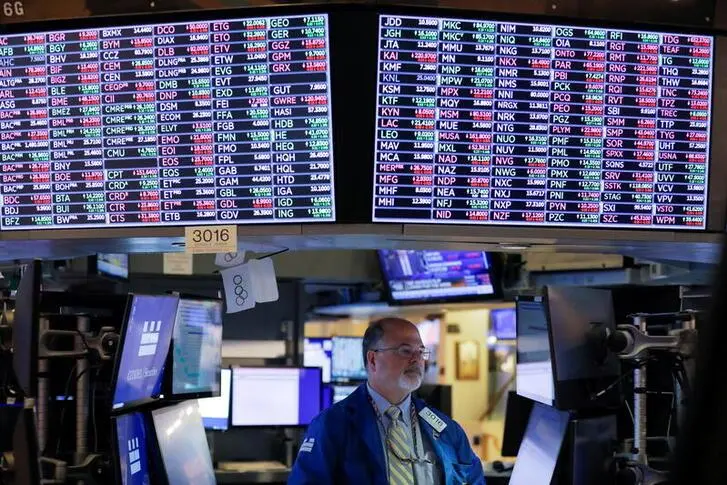PHOTO
NEW YORK - U.S. mid-cap growth funds, emerging market stocks and inflation-protected bonds were among the winners for U.S. investors in a turbulent third quarter that saw the benchmark S&P 500 hit a record high only to tumble at the end of September as rising Treasury yields and debt negotiations in Washington weighed on investor sentiment.
Growth funds investing in U.S. equities beat their value-focused peers in the quarter, as a COVID-19 resurgence over the summer bolstered the case for investors to shift back into some of the big technology names that led markets during last year’s coronavirus lockdowns, reviving the so-called stay-at-home trade. That move has reversed in recent weeks as Treasury yields shot higher.
The average large-cap U.S. growth fund gained 4.6%, while the average large-cap value fund gained 0.9%, according to Morningstar. The S&P 500 is on track for a 1.4% gain, after rising by nearly 8.2% in the second quarter.
"The general melt-up in risky assets continued and we think a lot of that is being driven by accommodative monetary policy," said Marc Zabicki, director of research for LPL Financial.
Investors are now gauging to what degree the concerns that erupted in recent weeks will impact U.S. stock performance for the rest of the year. Those include a hawkish tilt from the Federal Reserve that has boosted Treasury yields, the meltdown of heavily indebted Chinese property developer China Evergrande Group and a potentially ugly debt ceiling battle among U.S. lawmakers. The S&P 500 is on track for a 3.6% loss for the month of September.
"The global economy is suffering from a series of significant economic shocks at a time when some segments of the market are quite expensive based on lofty expectations of long-term growth," wrote Sebastien Galy, senior market strategist at Nordea Asset Management.
The $37 million Alger Mid-Cap 40 ETF was the best performer among funds that invest in U.S. equities, with a 17.4% gain, according to Morningstar. The fund's largest holdings include cloud-based company HubSpot Inc, which rallied 16.9% for the quarter, and biotech company Repligen Corp, whose shares soared nearly 44% for the quarter.
Among the quarter's top performers were several funds that invest in Indian equities, a reflection of the surging Sensex stock market index, which is up 24.4% this year on a wave of central bank-fueled liquidity and a flurry of tech-focused public offerings. Food delivery company Zomato Ltd surged nearly 66% in its market debut after its Indian IPO on July 23, while shares of state-owned Life Insurance Corp are expected to debut later this year in what is set to be India's biggest initial public offering on record.
The gains from the red-hot Indian market pushed the $617 million Wasatch Emerging India fund ahead of all other actively managed U.S.-based funds, with a 21.9% return for the quarter through Sept. 24, according to the most recent data available from Morningstar. The fund's largest position, accounting for nearly 10% of its assets, is in financial services firm Bajaj Finance Ltd, whose shares are up nearly 130% over the last 12 months.
Among bond funds, six of the 25 top-performing funds invested primarily in inflation-protected bonds, nearly double that of any other category, according to Morningstar, amid worries that the current surge in consumer prices may last longer than expected.
The $4.2 billion AlphaCentric Income Opportunities fund, a multi-sector fund that has approximately half its portfolio in below-investment-grade bonds, turned in the best performance among bond funds overall, with a 4% return for the quarter.
One key factor that will likely drive the performance of both stocks and bonds for the remainder of the year will be the outcome of debt ceiling negotiations in Washington over the next few weeks, said Randy Frederick, managing director of trading and derivatives for the Schwab Center for Financial Research.
Congress has yet to pass a funding bill to keep the government open. Treasury Secretary Janet Yellen has warned that the U.S. government will hit its debt limit on Oct. 18, opening the possibility of a default.
Frederick expects the stock market to rally into year-end if those issues are resolved before the deadline.
(Reporting by David Randall; Editing by Ira Iosebashvili and Leslie Adler) ((David.Randall@thomsonreuters.com; 646-223-6607; Reuters Messaging: david.randall.thomsonreuters.com@reuters.net))





















